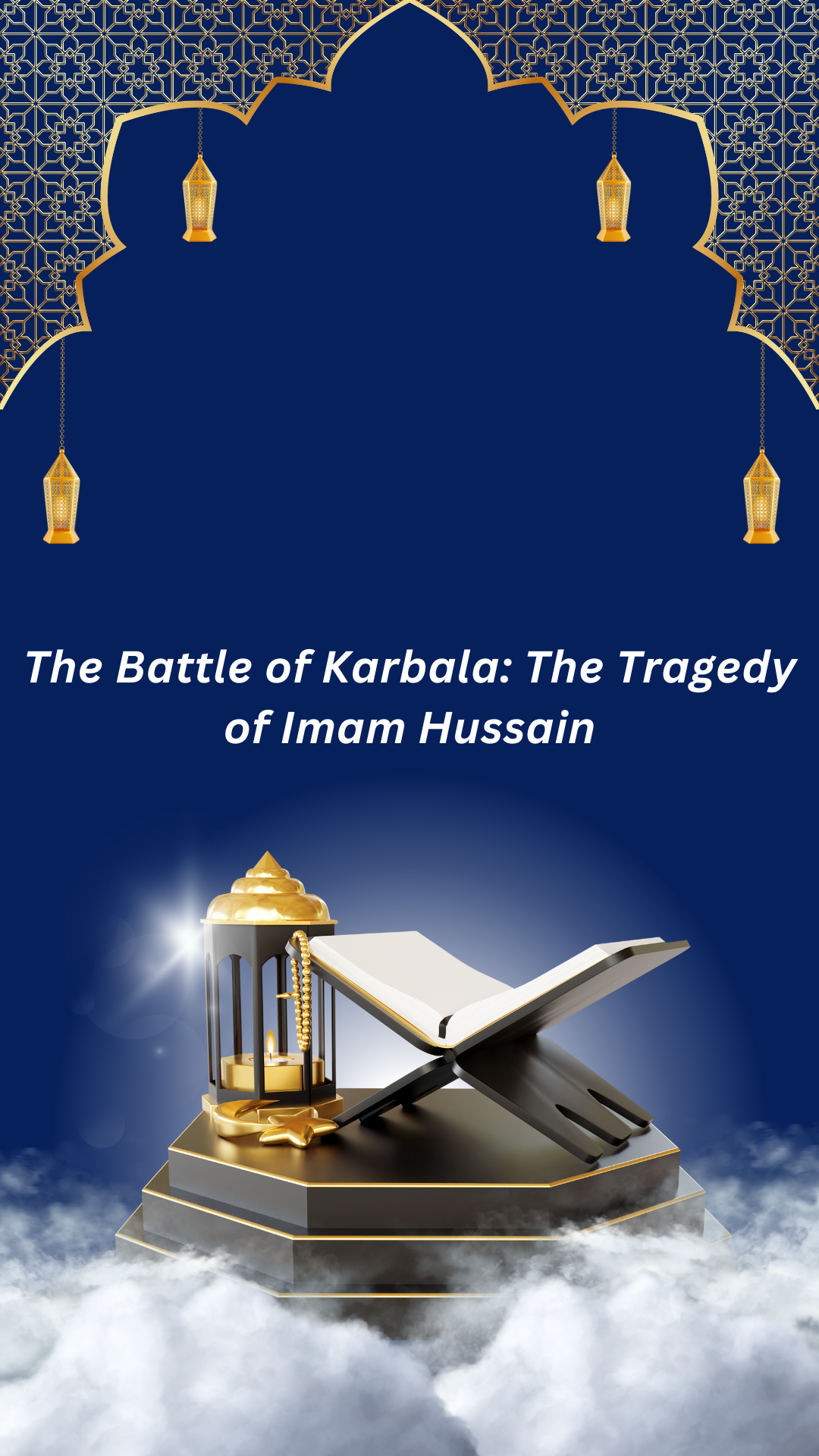The Battle of Karbala, fought on October 10, 680 AD (10th Muharram 61 AH), stands as one of the most tragic and pivotal events in Islamic history. This battle saw the martyrdom of Imam Hussain ibn Ali, the grandson of Prophet Muhammad, and a small group of his loyal companions at the hands of the Umayyad forces led by Yazid ibn Muawiya. The events of Karbala have left an indelible mark on the Muslim consciousness, symbolizing the eternal struggle between truth and falsehood, justice and oppression.
The Prelude to the Battle
After the death of Muawiya in 680 AD, Yazid ascended to the throne as the Umayyad caliph. Yazid’s rule was widely contested due to his perceived impiety and deviation from Islamic principles. Imam Hussain, the son of Ali ibn Abi Talib and Fatimah, the daughter of Prophet Muhammad, was seen as a rightful leader by many Muslims due to his piety, knowledge, and close lineage to the Prophet.
The people of Kufa, a city in present-day Iraq, sent numerous letters to Imam Hussain, urging him to lead them against the oppressive Umayyad rule. In response to these calls, Imam Hussain set out from Mecca with his family and a small group of followers, despite knowing the risks involved.
The Arrival at Karbala
Imam Hussain and his caravan arrived at the plains of Karbala on the 2nd of Muharram. They were intercepted by a large Umayyad army led by Umar ibn Sa’ad. Despite being heavily outnumbered, Imam Hussain set up camp and prepared for what was to come. Over the next few days, the Umayyad forces cut off access to the Euphrates River, subjecting Hussain and his followers to extreme thirst and hardship.
The Day of Ashura
On the 10th of Muharram, known as Ashura, the battle commenced. Imam Hussain’s camp, consisting of around 72 men, including his family members and companions, faced a formidable Umayyad army of thousands. Despite the overwhelming odds, Imam Hussain and his followers demonstrated unparalleled bravery and steadfastness.
One by one, Hussain’s companions fought valiantly and fell. Among the martyrs were his half-brother Abbas ibn Ali, his son Ali Akbar, and his six-month-old infant son, Ali Asghar, who was killed by an arrow while in his father’s arms. The tragic scenes of sacrifice and loyalty left an everlasting impact on all who heard about them.
The Martyrdom of Imam Hussain
As the day progressed, Imam Hussain stood alone on the battlefield, severely wounded but unwavering in his resolve. He continued to fight until he was surrounded and brutally martyred. His death marked the culmination of a tragic day that saw the merciless slaughter of his family and companions.
The Aftermath
The Umayyad forces, led by Shimr ibn Dhi’l-Jawshan, desecrated the bodies of the martyrs and took the women and children captive. The survivors, including Imam Hussain’s sister, Zainab bint Ali, and his son, Ali Zain-ul-Abidin, were paraded through the streets of Kufa and Damascus, enduring immense suffering and humiliation.
The news of the tragedy of Karbala spread rapidly, evoking widespread mourning and outrage among Muslims. The martyrdom of Imam Hussain became a symbol of resistance against tyranny and a rallying cry for justice. The annual commemoration of Ashura, particularly among Shia Muslims, serves as a time for reflection, mourning, and renewing the commitment to the principles of truth and justice.
The Legacy of Karbala
The Battle of Karbala holds profound significance in Islamic history and spirituality. Imam Hussain’s sacrifice is seen as the ultimate stand for justice and righteousness, inspiring generations to stand against oppression. The lessons from Karbala resonate beyond religious boundaries, emphasizing the universal values of courage, integrity, and selflessness.
Karbala’s message continues to be relevant today, reminding humanity of the importance of standing up for what is right, even in the face of overwhelming adversity. The legacy of Imam Hussain and his companions endures, embodying the eternal struggle for truth and justice in the human experience



